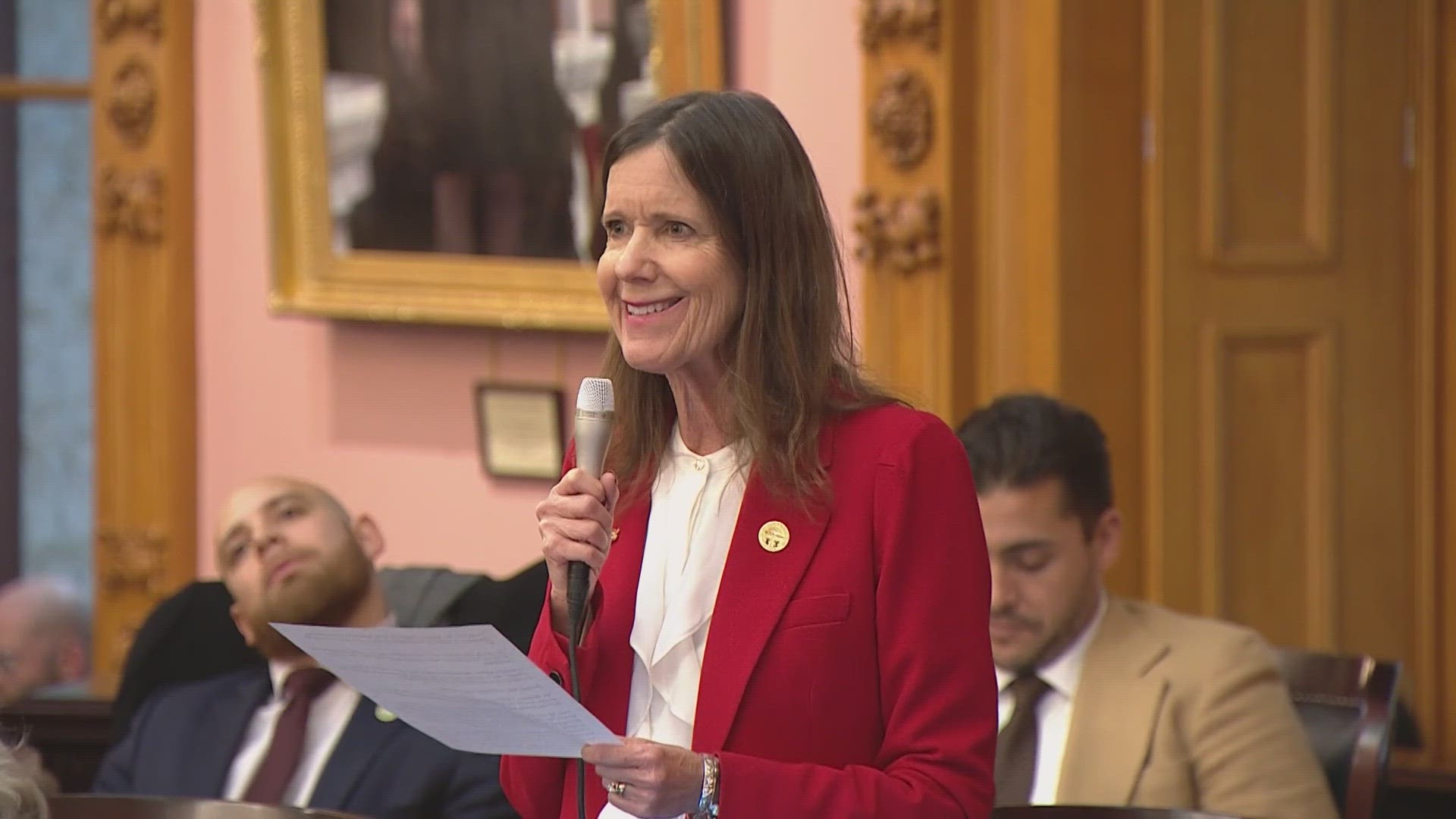COLUMBUS, Ohio — Nearly two weeks after Gov. Mike DeWine vetoed a bill regarding gender-affirming care for minors in the state, the Ohio House of Representatives has voted to override his decision. The vote passed 65 to 28.
The bill passed by both chambers along party lines last year bans gender-affirming surgeries, as well as hormone therapies, and restricted mental health care for transgender individuals under 18. It also blocks transgender student athletes from playing girls' and women's sports.
The vote from the Ohio House came in on Wednesday. The Ohio Senate still needs to vote to override the veto. The Senate's next session is scheduled for Jan. 24.
Following his veto of House Bill 68, DeWine directed several agencies to develop administrative rules. He said some of the rules and protections he is putting in place go well beyond what is in HB 68.
DeWine signed an executive order that went into effect Friday, barring Ohioans from receiving transgender surgeries until they’re 18.
He also directed the Ohio Department of Health and the Ohio Department of Mental Health and Addiction Services to take action.
The departments filed proposed administrative rules Friday that would ensure both transgender children and adults are not receiving treatment from what he called “fly-by-night” clinics or providers outside of proper healthcare systems.
The proposal would mandate a team for transgender individuals seeking gender-affirming care that would consist of, at a minimum, an endocrinologist, a bioethicist and a psychiatrist.
As part of their care plan, transgender individuals also must provide “sufficient informed consent” for gender-affirming care after comprehensive and lengthy mental health counseling, under the rules. For minors, parents also would have to give informed consent.
Additionally, the departments must also collect data submitted by providers on gender dysphoria and subsequent treatment, and his plan calls for the agencies to inform lawmakers, policy makers and the public.
These rules, unlike the executive order, are not in effect immediately. However, both the proposed rules and executive order are subject to change even though the executive order is effective — due to an emergency order. They must still go through the rule-making process with several state panels, including lawmakers, and opportunity for public comment.
DeWine said previously that even if the Legislature would choose to override the veto, his administration will continue to pursue the rules and that he is working with his legal team to ensure that his administration can implement them.

